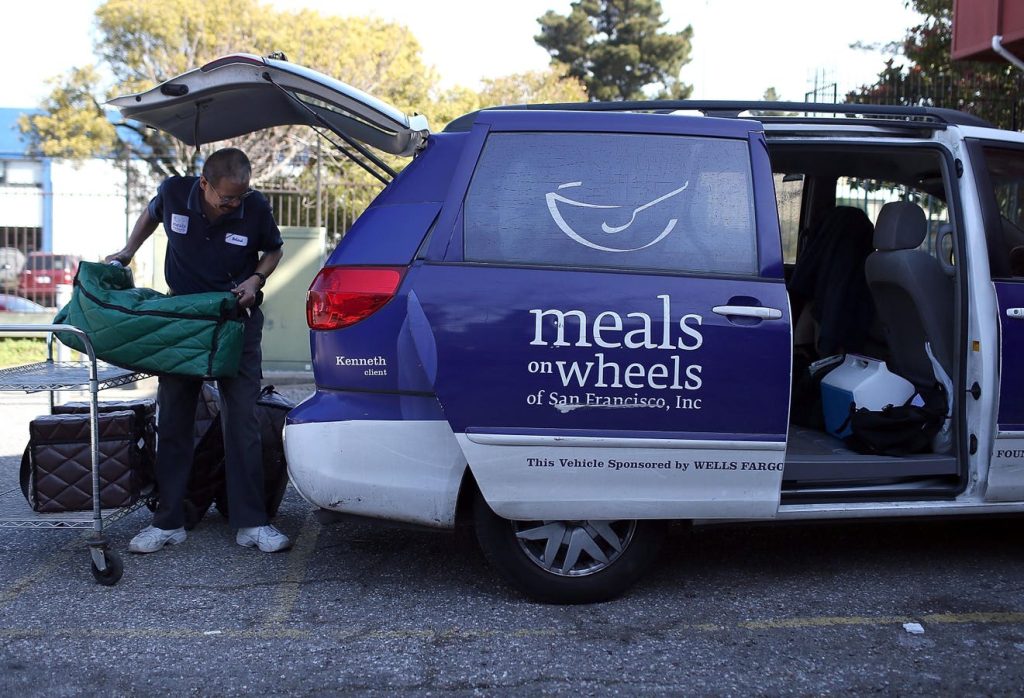Older Americans Act Faces Uncertain Future Amidst Political Gridlock
The Older Americans Act (OAA), a cornerstone of federal support for senior citizens, finds itself in a precarious position as it becomes entangled in a political tug-of-war. The OAA, which encompasses essential programs like Meals on Wheels, senior transportation, information services, adult day care, and caregiver support, was on the verge of a five-year reauthorization and expansion, enjoying broad bipartisan support in Congress. However, a last-minute dispute over an emergency spending bill between President-elect Trump, Elon Musk, and Republican congressional leaders has derailed the OAA’s smooth passage, leaving its future funding in doubt.
The OAA’s inclusion in the omnibus budget bill was abruptly withdrawn by House Speaker Mike Johnson, jeopardizing the program’s long-term stability. Although current funding levels will be maintained until March, the OAA now faces the risk of significant spending cuts, particularly as it has become a target for the self-proclaimed "Department of Government Efficiency" (DOGE), an initiative spearheaded by Musk and Vivek Ramaswamy with the backing of President-elect Trump. DOGE aims to eliminate federal programs that lack formal congressional authorization, a category into which the OAA currently falls.
The OAA’s predicament stems from a procedural quirk in the legislative process. Federal programs typically require two stages of congressional approval: authorization, which establishes the program’s existence and scope, typically for a set period, and appropriation, which allocates the necessary funding each year. While the OAA’s authorization expired, the Senate unanimously voted to renew it with a 20% funding increase. However, the House failed to act, leading to the inclusion of the reauthorization in the omnibus budget bill, which ultimately faltered due to political infighting.
This delay places the OAA in a vulnerable position. Musk and Ramaswamy have explicitly targeted "zombie programs," those operating without formal authorization, for elimination as part of their cost-cutting agenda. The OAA, despite its bipartisan support and the popularity of programs like Meals on Wheels, finds itself on DOGE’s list, raising concerns about its future. While individual programs like Meals on Wheels enjoy strong support, they are chronically underfunded and could be susceptible to across-the-board cuts.
The potential consequences of this impasse are significant. At best, the proposed funding increase for the OAA could be jeopardized. At worst, Congress, under pressure from DOGE and facing demands for substantial spending reductions, could impose drastic cuts on the OAA, potentially impacting millions of older Americans who rely on these vital services. Furthermore, the positions of federal employees managing these programs could be at risk.
The OAA’s fate now hinges on the unpredictable dynamics of the incoming administration and the next congressional session. While Congress could swiftly reauthorize the OAA upon its return, mitigating the immediate threat, the possibility of DOGE’s influence and the broader push for spending cuts looms large. The situation presents an Orwellian paradox: the Trump administration might target the OAA for cuts due to its lack of reauthorization, while simultaneously being responsible for blocking the very bill that would have granted it. This precarious situation underscores the vulnerability of vital programs for older Americans and highlights the potential consequences of political gridlock. The future of the OAA, and the well-being of the seniors who depend on it, hangs in the balance.


